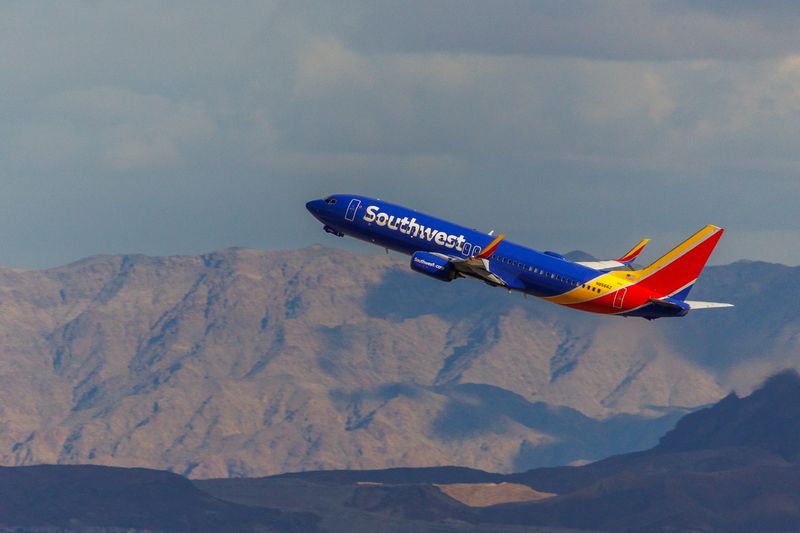By Svea Herbst-Bayliss
NEW YORK (Reuters) -Elliott Investment Management has launched a boardroom battle at Southwest Airlines (NYSE:) in a bid to replace 10 of its 15 directors as the hedge fund pushes to oust the airline’s CEO and improve its performance, it said on Tuesday.
The move is an escalation in a fight over who should run the airline and how it should change. Southwest’s stock price has fallen 24% in the past 52 weeks as it tries to implement a turnaround plan that includes adding seats with more legroom, moving to assigned seating and appointing a new board member in July.
The board members nominated by activist investor Elliott are made up of former airline CEOs, advisors and officials, including former Virgin America CEO David Cush and Robert Milton, the former CEO of Air Canada.
Southwest’s board will review Elliott’s proposed nominees as part of its ongoing board renewal process, the airline said Wednesday.
The airline’s shares rose 1.5% in premarket trading on Wednesday.
These nominees would give shareholders a choice between the existing board or a new board that “brings relevant expertise, fresh thinking and responsibility,” Elliott said in a statement.
Last week, Elliott said in a filing with the regulator that it had a beneficial ownership of 7%, putting it close to the 10% stake required for an investor to call a special meeting. The company has a stake of approximately 11% including derivatives.
The hedge fund has been pushing for the replacement of both Robert Jordan, who has been CEO since 2022, and executive chairman Gary Kelly, former CEO before Jordan.
Elliott had shown no willingness to engage in meaningful conversations, CEO Jordan said in an earnings call last month, adding that the airline is taking steps to transform itself.
Earlier today, Starbucks (NASDAQ:) named Brian Niccol, head of Chipotle Mexican Grill (NYSE:), as its new CEO after facing pressure from the hedge fund, which built a $2 billion stake in the coffee chain.
Southwest responded to Elliott’s investment by adopting a shareholder rights plan, or poison pill, that would kick in after an investor acquired 12.5% or more of the stock and allow other shareholders to buy more shares at a discount to to try to prevent a takeover.
“We expect that investors are unlikely to vote out the current leadership without a plan for the future, especially as LUV’s recent actions have shown a growing willingness to adapt in ways that challenge Elliott’s ‘stagnant’ characterization,” Jefferies said in a note before the formal meeting. announcement.

The carrier expects unit revenue in the third quarter to be flat and down 2% year-over-year, while operating costs excluding fuel are estimated to rise 11% to 13%.
Earnings have been under pressure in recent quarters, partly due to delays in Boeing’s (NYSE:) aircraft deliveries, which have hit revenues and exacerbated cost and pricing pressures as industry-wide overcapacity in the domestic market has depressed airfares .


